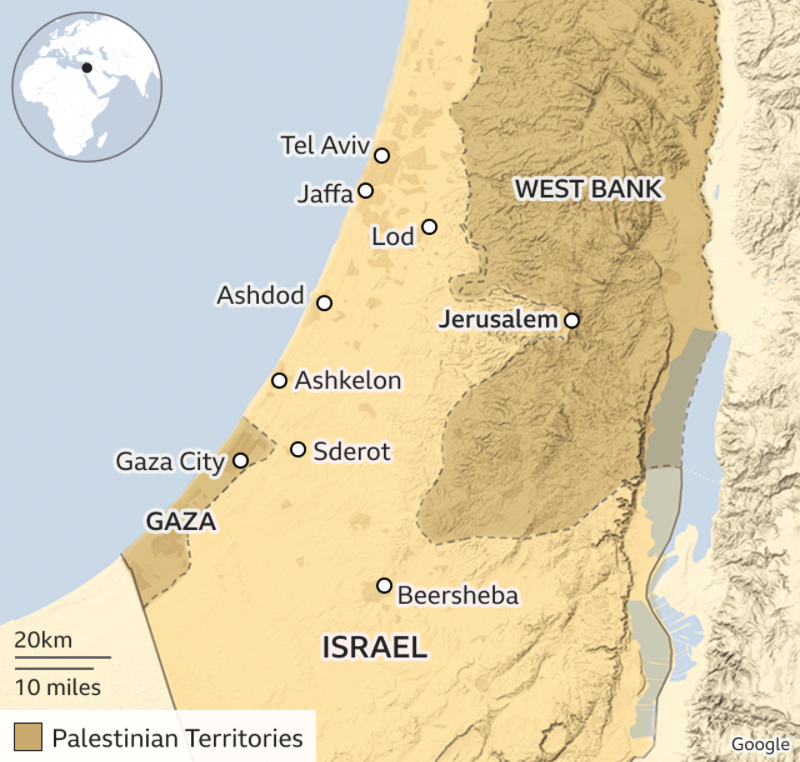Month: May 2021
Violence in Gaza and its Regional Implications
What has Happened:
- Clashes between Palestinians and Israeli police in the contested city of Jerusalem have escalated into large scale conflict.
- The violence includes the conflict between Israeli forces and Hamas, which has killed at least 150 people in Gaza and 12 in Israel, but also a wave of mob attacks in mixed Arab-Jewish cities in Israel.
- It had been seven years since the last major conflict with Hamas, and 16 since the last significant Palestinian uprising.
Below, Generals Robert Walsh, Spider Marks, and Frank Kearney of Academy’s Geopolitical Intelligence Group discuss the significance of the ongoing and potentially escalating violence in Gaza.
Why it Matters:
“Israel has a set of tactical objectives that they will execute before they are ready to talk. During the quiet times, Hamas and others build their infrastructure – both human and physical. When an escalation occurs, the IDF attacks those targets to reset the competitive landscape. The Israelis have precision capability but use that sparingly as I believe they want the adversary to pay a price for the very much fewer Israeli lives lost. The Israelis have never practiced proportional response in my view. In short, when Israel finishes their military targeting objectives successfully, they will negotiate. The Abraham Accords have the Sunni Arabs less vocal at this point which is allowing the Israelis to finish their tasks. I think that may be outside the intent of the accords.” – General Frank Kearney
“The Palestinians own the strategic high ground of world opinion; Israel owns the operational, and therefore, the outcome. No matter how precisely Israeli forces go after Palestinian rocket launch sites, their command-and-control facilities, or their tunnel complex, there will be collateral damage. Resultantly, there will be international calls for a cease fire. However, Israel has no incentive to de-escalate until their objectives are met. Like in the past, it is not clear now what must be achieved for the IDF to back off. Committing ground troops to clear the tunnels is a bad idea. They have learned that lesson. Palestinians own the tactical advantage; Israel would succeed but it would take too long and cost too many lives. Israel cannot afford either. They will continue to attack designated and confirmed targets (Israeli intelligence collection in Gaza is unsurpassed) under the protection of the Israeli Iron Dome air defense system which is quite capable. This will continue until rockets are no longer launched from Gaza. Give it a week. Watch northern Israel. Iran continues to export missiles across the Syrian bridge to Lebanon and southern Syria in a position to threaten Israel. The IDF will not take its eye off that vulnerable flank although it remains “quiet” for now.” – General Spider Marks
“General Kearney made some very prescient points. I will try to focus on the politics since he focused on the military and tactics. The situation on the ground is being fueled by increasing tension not in Gaza or Lebanon, but between the Israeli Arabs and Israel’s far-right Jews. Internal politics in Israel and with the Palestinians are becoming more extreme and hardline just like we are seeing in the U.S. Within Gaza, the divide and lack of cohesion between the two major political parties, Hamas, and Fatah, has allowed Hamas to take advantage of the situation and conduct the current rocket attacks on Israel. While the situation to the south has broken out into war in Gaza and the adjacent parts of Israel, the situation on Israel’s northern border with Lebanon (and Iranian backed Hezbollah) could also escalate into violence. Hezbollah has been held in check by Iran for fear of repercussions on the ongoing nuclear negotiations with the U.S. and the other signers of the JCPOA. Finally, the Arab countries are starting to renounce Israel’s actions and once again discuss the Palestinian situation. This could result in unravelling the improved relations achieved through the Abraham Accords. Keep a close watch of the Israeli ground forces to see how far this could escalate. For now, Israel is taking advantage of the situation to target those threats that their intelligence has developed over time.” – General Robert Walsh
Original Post 05/18/2021
Cyber Hack on U.S. Infrastructure
What has Happened:
- Late on Friday evening, Colonial Pipeline announced more than 5,000 miles of its pipeline would be shut down to contain a ransomware breach.
- The pipeline carries 45 percent of the East Coast’s fuel supplies.
- On Saturday, the Biden administration provided further details of the attack identifying the likely attackers to be a criminal group.
- Cyber criminals often conduct attacks in cooperation with nation states.
Below, General Robert Walsh and General Frank Kearney of Academy’s Geopolitical Intelligence Group discuss the significance of this cyber-attack, the vulnerabilities to U.S. critical infrastructure, and the possible next steps around cyber focused policy.
Why it Matters:
“The ransomware cyber- attack is another embarrassing example of the cyber vulnerabilities in our public and private sectors. Some of these attacks have been by criminal hackers while other have been tied to nation states such as China, Russia, North Korea, and Iran. The attack on the Colonial Pipeline shows the close ties between large private companies and our national security through economic effects. The U.S. is a democratic country that prides itself in both free speech and open business competition. The nature of our openness presents risks from criminals, adversaries, and enemies that seek to exploit our openness.
The Biden administration is developing an Executive Order after the recent Russian and Chinese attacks that highlights the vulnerabilities on networks that the public and private sectors rely upon. The Department of Defense has gone to great lengths to increase cyber security. The DoD has the capability to secure networks and prevent intrusions. This places increased cyber security certification challenges on many smaller companies that do business with the DoD. Replicating these standards throughout the private sector is a challenge to our democracy and the networked information sharing and openness we have embraced. It’s a challenge that the Biden administration and Congress have accepted.” – General Robert Walsh
“This continuing string of attacks against infrastructure targets remains troubling. First, the resistance to immediately admit an attack is in progress and seek assistance weakens the ability to respond and exploit the attack by competent agencies. Second, there is little resilience built into the systems and thus vulnerability is increased. Legislation is probably needed to require redundancy. Critical Infrastructure is also ill-defined as the network of interdependent government and commercial entities are not evenly reviewed and protected. Lastly, and most dangerous, is the volume of hackers. Whether state sponsored, organized crime, or hacking groups, all share knowledge while governments and commercial entities do so less quickly and less efficiently.
This topic is rich for the discussions of economic warfare (or the ability to attack economic targets), informational targets, and military targets – simultaneously creating overwhelming decision points for the U.S. government. Total warfare is with us and this is one line of attack where we are very vulnerable.”
– General Frank Kearney
Original Post 05/10/2021




